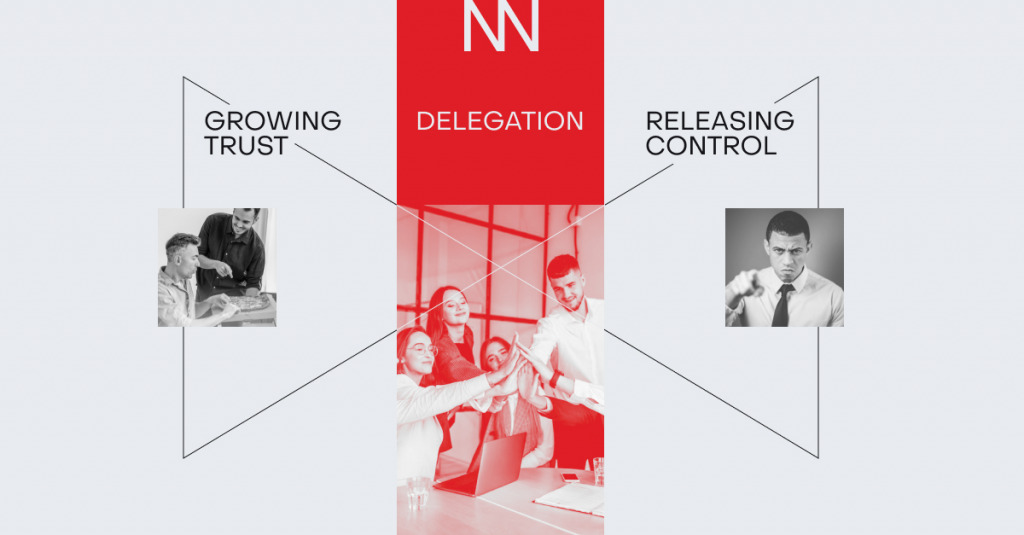Comprehending a flair for managing
My take on life calls for everything to be relatively organized and structured, which I have successfully implemented in my work. There is another paradigm where you pursue your personal knowledge and profit with little care about where you work or what product you work on. At this point, exclusive possession is above everything. But this is not me. I have always pursued the idea of having smooth processes, creating comfortable conditions to work myself, and moving forward within them. “Whatever you do, do it to the extreme,” as Jason Statham could once have said.
Looking back, all I ever wanted was to work somewhere for a long time: get settled, and then make everything function nicely. Because otherwise, frequent change in workplaces steals the chance to enjoy the outcomes of well-established processes. For the most part, I found myself around people who were more interested in their personal development rather than the product’s success. And there has always been a demand for people ready to take on some responsibility, especially when paying extra for it is unnecessary.
It was essential to have some authority in the team, which had to be achieved by two things: either knowing more than others or being able to provide a favorable environment to get things done. It’s always palpable when your work benefits not only yourself but also other teammates. Let’s say two employees are working on the same task. From my viewpoint, it’s logical to decompose the task, distribute complementing parts between them, and therefore finish the task faster and make everyone happy. This is the area where I clearly saw myself in.
The first team
At that time, I had about a year of experience. The team was a little less experienced than I was (if the word experience is suitable in such time frames at all). A part of my team could barely speak English, and the lead above me was Romanian. Since communicating with him in Romanian gave us a hard time, there was nothing much left but to use English and make things simple for the lead and the team both. In short, it was a win-win for everyone, well, probably, except for me. But I just thought: “If not me, then who?”.
Can it be called “managing”? No, because this is a classic manager vs. leader scenario. Basically, the “manager” concept is not close to my heart because you need to show people that you are not just standing there from above and telling them: “Right, you do this, and you do that.” Your team needs to confide in you, count on your support, and know that you will stand next to them, take a paddle, and row. This stance has always felt like mine. I never had a relationship like: “I tell you what to do, you do it.” Obviously, some sort of team management is always there when it is necessary to agree on the coordinate system with people to prevent excessive familiarity. You need to make sure everyone grasps their own responsibility.
Dotting the i’s in the expectations of all parties is pivotal. First, I explain who I am and how I can be useful. At the same time, I try to fathom who other people are and how they can live up to their potential. Afterward, I divide the areas of responsibility between them: “You are responsible for this, and you are responsible for that.” In any case, there should be some agreement from day one on duties, responsibilities, and expectations. Thus, you kill two birds with one stone. First, you establish a contact that paves the way for commitment. And the second point is that you make it clear there will be no micromanagement, which is a motivator per se.
There are probably three motivators. First, fair compensation. The second is someone telling you: “You go there and do that.” The third is when a person feels responsible. I support the third option — making things clear about who is responsible for what, even juniors. Having zero responsibility, the team does not grow simply because it has no reason to do so.
Trust and delegation
Putting my work in the hands of others was something I struggled with for quite a while. The challenge faded away when I got to building a team from scratch, and I was responsible for a number of projects that grew exponentially. Even theoretically, I could not do all this alone, given these projects were pretty huge. The company decided to assemble a team, and the budget was enough for juniors. It’s a classic story where a business realizes the urge to scale while being very cautious about spending. This is not always effective because juniors require time to be taught and properly inducted. Therefore, you need to spend resources on them to work with them and validate their presence.

I hired three juniors who were green and had just finished their courses. They lacked independence, and I did the work twice, for myself and them. Structurally, I loosened my grip from the very beginning, watched them cope on their own, and just looked at the results. At that time, their work was invisible in the big picture and had no direct impact on business as I handed them the components that had already been tested. It was just a mere practice.
Within these circumstances, I had a rough idea of how good or bad everything was. Again, the question of how good and bad also applies to recruiting. I had my part in it too, and on the one hand, someone could say that I recruited the wrong people. However, time has proved otherwise.
Generally speaking, juniorship is not so much about knowledge as about visceral understanding of what they do and why. That is, when juniors cannot ask questions correctly and understand the reason behind their actions, they will not even be able to make a search query in Google, which is a recipe for a fiasco.
It all begins with doing everything with your own hands, by feeling, groping, and learning. You get your own hands-on experience first. Indeed, courses have a place to be, but reality makes its own adjustments. The second stage entails sharing the body of work almost 50/50. In the third stage, you entrust even more responsibility, with the split being in the teammate’s favor. Eventually, you arrive at the fourth stage, having a fully independent specialist who you supervise. The crux of this progression lies in realizing the ultimate responsibility: it’s on me, whoever does the actual job.
To some degree, I have been through all these phases. As far as the delegation is concerned, trust is the thin red line that cuts across the entire path. Being able to trust my team requires exploring their approaches, and that’s exactly what each stage is made for. Trust arose through the synchronization of approaches and the fact that I was sharing some of my life’s practical insights from various perspectives. Gradually, my team’s actions gained more sense and reasoning.
Development of the team
Professional evolution lies in three dimensions: hard skills, soft skills, and responsibility. Hard skills mean knowing ‘how.’ Having soft skills in place implies knowing ways of interacting with others. And responsibility manifests itself in their willingness to apply hard and soft skills for the product’s benefit.
Initially, newbies have a vague idea about the processes, mechanics, and expected results. In this case, providing them with some responsibility zone would be nothing but a short-sighted decision that will lead to nothing good. On the other hand, growing up means delving into diligent work and engaging with the specified environment. By doing so, one can figure out the value and use of daily meetings, retrospectives, or some scrum rituals — the time invested here is saved elsewhere. At the end of the day, a specialist identifies with a product and recognizes own mission, and muses on the next career steps.
At the start of the seniority journey, there is only so much one can take; therefore, it is worth sticking to one’s own strengths. To stimulate growth, a specialist heads into unknown waters — new components or a product itself.
Communication
First things first: decide for yourself what model is more to your liking — a manager or a leader. There are various communication models, for example, formalized communication, which I don’t particularly like. I prefer staying somewhere in the middle between the maximums. People on a team expect to see a human touch. At the same time, they are all in the same boat to benefit the business they work for — we, as leaders, must ensure they get that. We are both people and a resource, and in terms of the latter, there is nothing offensive about it.
To achieve superb performance, every teammate must feel protected and not be afraid to make mistakes. Each of them needs a sense of security and a mentor’s support. You don’t have to give them fish — your job as a growth inspirer is to give them a fishing rod and a direction for where to throw it.
In communication, I distinguish three aspects:
Manager-to-subordinate — a certain symbiosis of communication between people, but at the same time, with a clear understanding of work duties. If you have an area of responsibility and you know that you are working with certain people, you will identify yourself more with the team as an integral part of it.
Manager-to-stakeholder — this one is more about some sort of balance. But, if we are talking in the first case about the balance between duties and personalities, here, we speak about balancing the interests of the business, your unit, and other departments.
Person-to-person — communication within the working environment, abstracting from the titles. That is the interaction between human beings who try their best to be the best versions of themselves. The more experience I acquire as a senior, the more I understand there are things that I cannot allow myself any longer. For instance, any kind of emotional immaturity or panic. I am perfectly aware of my role in a given scene: to inspire and epitomize serenity.
Responsibility to customers
If we were to generalize, the major customer’s concern is delivery, whether their precious product is progressing predictably and is as close to the initial plan as possible. Sometimes responsibility to customers can lead to chaotic schedules and overtime work. When you have a limited time frame and deadlines looming, you have two options: give in and face reputational loss, or sit down, roll out the sleeves, nail it, and make your clients come for more.
Often, customers are not on the same page with you regarding the technical aspects of it all. Moreover, not all of them realize that a product without improvements is simply impossible. To them, even the tiniest thing might look like a tragedy on a global scale, and that’s exactly how they might present it to you. As a communicator, a leader’s task is to listen, take into consideration, cool things down, and explain something precisely at an accessible level as many times as it takes.
What is the company’s role in manager and leader development?
The answer is simple — it’s the environment, primarily built by people who surround you. I have been lucky to rub shoulders with extraordinary human beings who motivate me not to fall face down in the mud. Other than that, it’s just nice to have them at the meetings, be with them in the same space and time, and hear them speak their minds. The company provides a sense of belonging where the importance of your work is acknowledged. I like what I do and with whom I do it here, at Innovecs.
This article was previously published on dev.to.
